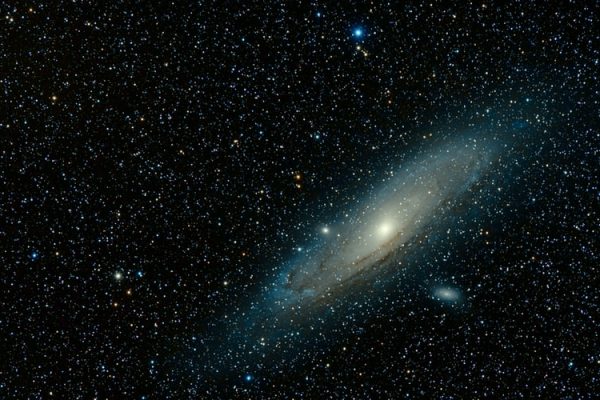Apparently the sound of thunder is the passing of the angel Gabriel. We don’t need scientific explanations in the world of some Muslims to explain for the mysterious wonders of this world. Earthquakes are the wrath of God, not the shifting of tectonic plates.
Here is the problem with the modern Islamic approach to science. It explains why certain things happen from a religious perspective but then also ascribes the “how” to it too. Political establishments across the Muslim world, a mirror of each other with their deeply authoritarian ways, regard freedom in any form as a possible wellspring for rebellion and dissent that upsets the power of the establishment and provides a way for the ordinary masses to deviate from the entrenched status quo. Freedom from intellectual to civil is hugely suppressed in the Middle-East where once it was cherished to make significant scientific breakthroughs. Today, that development has been arrested by leaders attaching some apocalyptic religious message and warning to any possible avenue where dissent can begin from, such as pinning religious explanations for natural catastrophes.
And therein lies a massive problem; religion can always explain why a disaster happens but how is another issue. The Quran though in the eyes of many reconciled faith with modern scientific theories. From the creation of the universe to its expansion, to the water cycle and nature of the animal kingdom; from the existence of dinosaurs to the possible theory of multiple universes- the Quran has testified and admitted to essentially all of these things.
Recently however the scientific development within the Muslim world has been arrested. For a religion that had a rich history of biologists, physicians, mathematicians and philosophers, today it has scholars who believe in repressing the intellectual freedom of Muslims to understand why the world is as it has been ordained by God.
Illuminating yourself with knowledge and exploring the boundaries of science is hugely encouraged within Islamic tradition and the Quran itself demands us to increase our knowledge of the world. Yet when debates on issues such as human evolution emerge, we see a conflict within the Muslim community surfacing, where many believers struggle to reconcile religious teachings with science. It is the struggle of every theist, particularly progressive theists, to reconcile faith-inspired values with principles of reason, rationality and free thinking.
However increasingly many Muslim countries are repressing free scientific thinking as they regard it as some form of dissent that must be pushed underground. They might have university degrees in science, but theirs is shaped immensely by a religious lens. We have already seen the implications of this in America where Republicans are adamantly rejecting climate change, attaching global warming to the “mysterious works of God” or blaming gays for it. One Republican brought a snowball into Congress to somehow diffuse the entire climate change reality (not a theory anymore). Well that should do it; what good is the consensus of the entire scientist community if a Republican can bring a snowball into Congress and it doesn’t melt?
Saudi Arabia is a massive example of this. Adhering to strict Salafi teachings, their views on why earthquakes or floods occur are designed to simply create a society of individuals not inspired by religious to seek knowledge, but brainwashed to fall in line and never question. Within these countries, repression of scientific knowledge is really just another loss of freedom where the cost of having religion implemented is that you don’t get to ask how the religion is run or what it means for you. In fact, do you even get to ask at all?
And perhaps this is what is at the crux of the science debate within modern Islam, extending far beyond the issue of science. Do we allow questioning to take place? Is free expression, even when aimed for benevolent genuine knowledge-seeking purposes, condemned immediately as heretical thinking by too many people? Usama Hasan is a widely disliked imam, for obvious political reasons, but when he raised his support for human evolution did he really deserve a death threat? Are we now at a stage where Islam no longer contributes to science because its adherents fear that understanding the ways of God’s unseen creations are somehow attacks on His existence? If we can accept that dinosaurs exist (although there are those sceptics for whom even a good collection of fossils will not do the trick) and that animals evolved, why are we so opposed to even considering human evolution? Within the Quran, human development occurred in various stages, just like the rest of Allah’s creation. We originated from water according to the Quran and science believes we came from the sea, originally as molecular organisms that then evolved. So could it be that God developed us from these tiny water-dependent organisms?
These are of course, hypothetical theories, that I stopped caring about when I realised I was not good at science. But the point is that within Islam we are encouraged to explore them, not shy away from them. Sometimes too many people embrace Islam without understanding its essential spirit and values. Reason, rationality and intellectual freedom were the same values afforded to the great Muslim thinkers during the Islamic Golden Age; what is it that denies us the same rights to discover?





